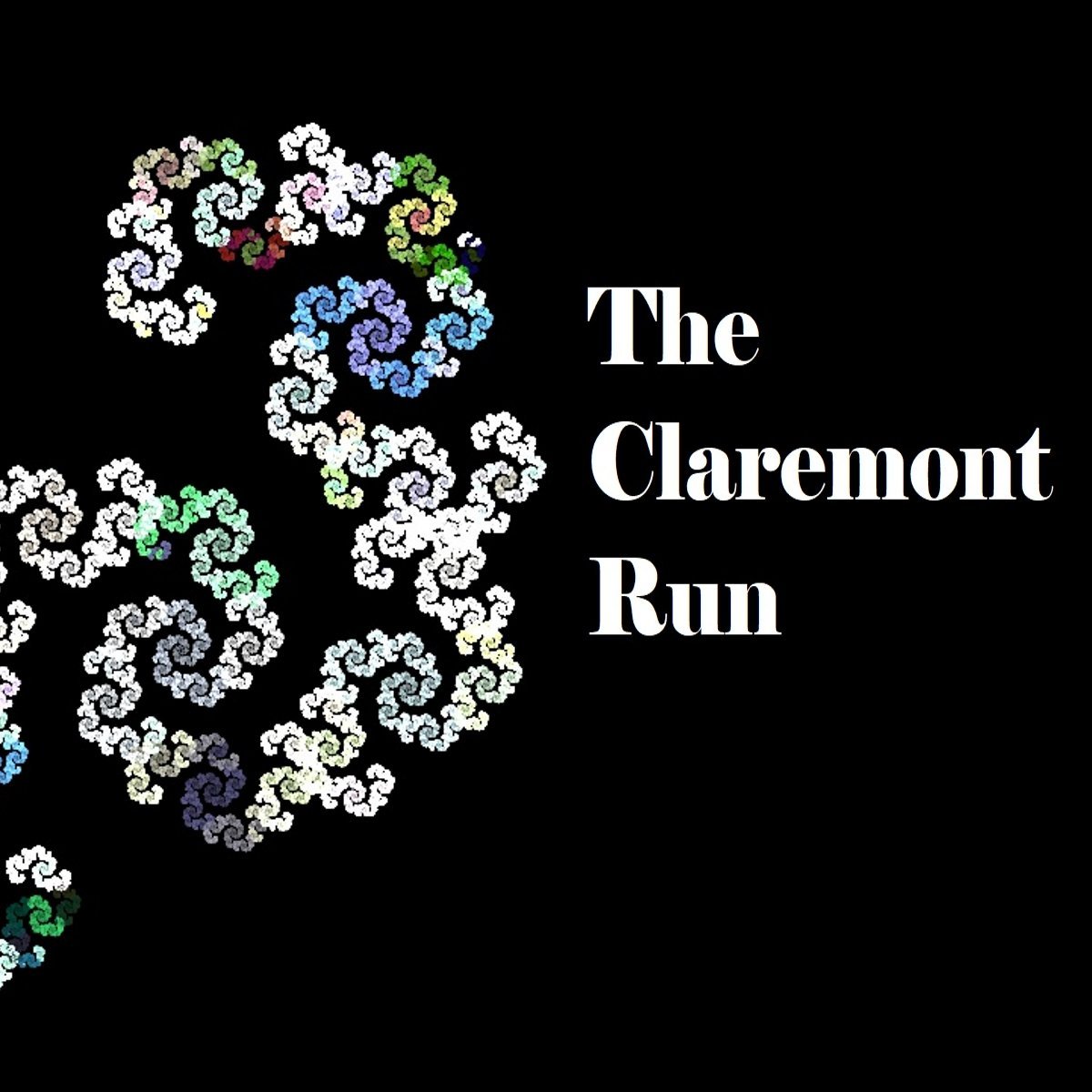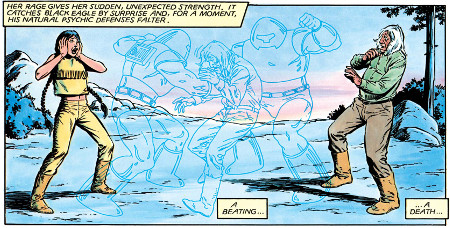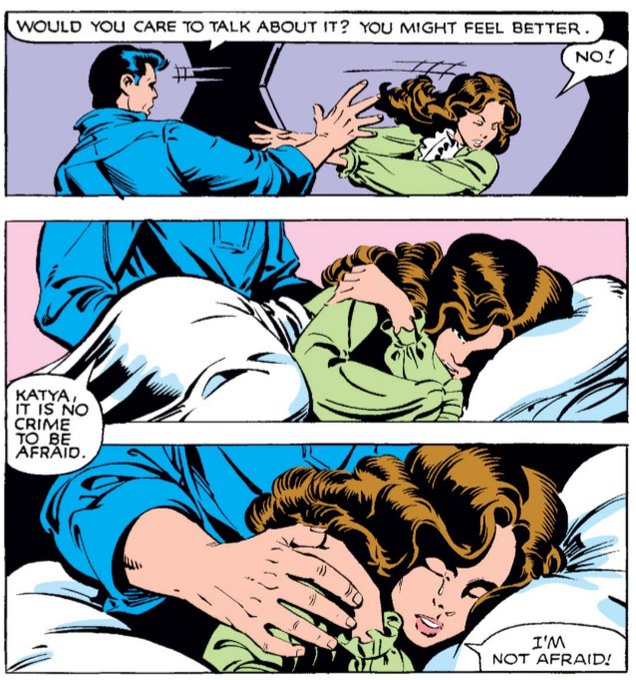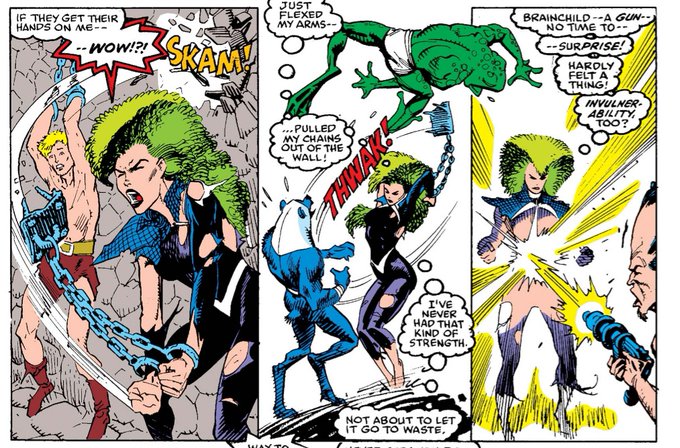Claremont first created Jamie in the pages of ‘Captain Britain Weekly’ as the elder brother of Brian and his twin sister Betsy (Psylocke). Thereafter, Jamie Delano put together a story in which Jamie is tortured to madness for slave-trading. Brian abandons him. 2/7
Adding to this is the presence of now-villainous heroes such as Madelyne, Havok, Polaris (as Malice), as well as the petty antagonism amongst nearly the entire X-roster, such as the fight between X-Men and X-Factor. 8/11
S’ym and N’astirh are the major players here, but they too are operating within a power conflict with each openly petitioning to become the new ruler of Limbo/hell-on-earth. 3/11
Dani’s powers of revelation also allow C to further explorations of important franchise themes such as telepathic consent, conflict with destiny, and the capacity for superpowers to alienate. They might not be the most exciting in battle, but they offer a lot to the stories. 6/6
It’s a simple enough concept, but still a pivotal one to acknowledge: that the absence of fear can often define a comic book superhero, yet C’s heroes tend to eschew that trope, creating instead a grounded, realistic and relatable portrayal of (scared) superpowered beings. 8/8
Speaking to character consistency and distinctive voices, Claremont’s Colossus is repeatedly presented as someone who struggles with big emotions to match his big physique, but routinely stifles and represses said emotions beneath a veneer of stoicism. #xmen 1/10
The extra-worldly nature of the Demon Bear thus lends itself to the genre of “Cosmic Horror” (think HP Lovecraft), just in terms of an expanding consciousness of unseen and malevolent powers on a scale and scope previously unimagined. 7/9
Also, because I'm rusty after a week off, I did capture way too many images, so here's some bonus examples:
Given the kind of overhauls that we see in C’s roster year to year, this may be a huge secret to his success. How many comics, TV, or even film franchises can have focal characters often leave without diminishing the success (critical and popular) of the franchise itself? 9/9
Overall, this strategy eschews narrative efficiency in the interest of long-term character development. At the same time, it adds novelty and intrigue to the story, with the reader never really show who will step to the forefront next. 7/9





















